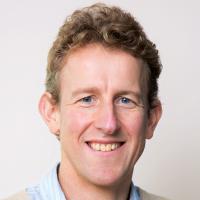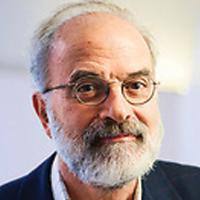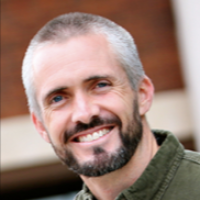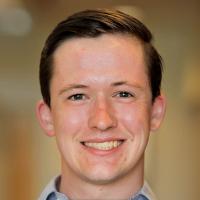
Tim Lenton
Higher-Level Agency and Directionality in Ecology and Earth Science
Chance versus purpose in biosphere evolution
University of Exeter
Tim Lenton is founding Director of the Global Systems Institute and Chair in Climate Change and Earth System Science at the University of Exeter. His research is focused on modelling life’s coupling to the Earth system, biogeochemical cycling, climate dynamics, and associated tipping points. He co-authored the Planetary Boundaries framework and is an expert in ‘whole systems’ thinking. His books ‘Revolutions that made the Earth’ (with Andrew Watson) and ‘Earth System Science: A Very Short Introduction’ have popularised a new scientific view of our planetary home.

Stefan Linquist
Higher-Level Agency and Directionality in Ecology and Earth Science
Cluster Coordinator
University of Guelph
Stefan Linquist is Associate Professor of Philosophy at the University of Guelph. His work explores foundational assumptions in the biological sciences, in particular the disciplines of genomics and ecology. Recent publications investigate the various meanings of “epigenetics”, purported functions of junk DNA, the relationship between evolutionary and ecological modes of explanation, the existence of generalizations or “laws” in ecology, and the aesthetic value of biodiversity. He is coauthor of the book Defending Biodiversity: Environmental Science and Ethics (Cambridge University Press, 2017).

Adi Livnat
Directionality in Genomics and Macroevolution
Mutation rates, variational specificity, and genomic directionality
Subaward Principal Investigator
University of Haifa
Adi Livnat is an Associate Professor in Evolutionary and Environmental Biology and the Institute of Evolution at the University of Haifa in Israel. He is interested in the fundamental question of how evolution happens. He has developed a theoretical account - Interaction-Based Evolution - which argues that the mutations driving adaptive evolution can be neither random nor Lamarckian: they can respond in general not to information that comes directly from the immediate environment (as in Lamarckism) but to information that has accumulated in the germline genome as a result of evolution. Thus, evolution results from co-evolving interactions of mutation-specific probabilities of origination and selection. One empirical prediction of this account is that mutation-specific rates can come to respond to specific selection pressures following multiple generations under selection. The Livnat Lab has developed a variety of novel genomic methods to test these predictions across loci and organisms.

Giuseppe Longo
Agency and Directionality in Development
Intrinsic purposiveness and the shaping of development
Giuseppe Longo is a Research Director CNRS (Emeritus) at the Cavaillès interdisciplinary center of Ecole Normale Supérieure, Paris (ENS). Former Research Director in the Dept. of Mathematics, then of Computer Science, at ENS (1990-2012), he has been Associate Professor of Mathematical Logic and, then, Professor of Computer Science at the University of Pisa (1981-1990). He spent three years in the USA (Berkeley, M.I.T., Carnegie Mellon) as researcher and visiting professor, spent several months visiting Oxford and Utrecht, and has been adjunct professor, School of Medicine, Tufts U., Boston (2013 - 2020). Founder and editor-in-chief (1990-2015) of Mathematical Structures in Computer Science, Camdridge U.P., Giuseppe is (co-)author of more than 100 papers and three books. He recently extended his research interests and works on the epistemology of mathematics and theoretical biology.

Alan C. Love is Professor of Philosophy and the Winton Chair in the Liberal Arts at the University of Minnesota and Director of the Minnesota Center for Philosophy of Science. His research focuses on diverse conceptual issues in biology and has included work on evolutionary developmental biology (Evo-devo), developmental biology, genomics, molecular biology, and paleontology. He uses a combination of approaches, including collaboration with scientific practitioners, to investigate a variety of philosophical questions: conceptual change, explanatory pluralism, knowledge structure, reductionism, the nature of historical science, and interdisciplinary epistemology. Other areas of interest include the role of history and thought experiments in philosophical inquiry.

Craig Lowe
Directionality in Genomics and Macroevolution
The genetic basis of macroevolutionary trends
Subaward Principal Investigator
Duke University
Craig's background is diverse in that he has significant training in both computational genomics and developmental genetics. His undergraduate education is in computer science, with a focus on machine learning. For his graduate degree, he worked to apply his computational skills to the analysis of some of the first vertebrate genomes. For his postdoctoral studies, he focused on developmental genetics so that he could perform experiments at the bench to test his computational predictions. In his own lab, he mixes computational genomics and experimental genetics to establish a virtuous cycle. The computational predictions define a set of promising candidates for wet-lab experiments. The wet-lab experiments then either support or disprove the computational predictions, which allows his group to then improve the computational model. This diverse background has allowed him to create an interdisciplinary environment where his lab has had students with backgrounds in mathematics, neuroscience, developmental biology, and genetics.

Riley J. Mangan
Directionality in Genomics and Macroevolution
The genetic basis of macroevolutionary trends
Duke University School of Medicine
Riley is a Ph.D. Candidate in Molecular Genetics and Microbiology who specializes in evolutionary biology, comparative and population genomics, and developmental neuroscience. His research focus is in uncovering how genetic changes specific to the human lineage have influenced neurodevelopmental programs that have enabled the emergence of human-specific morphological and behavioral traits.

Juliomar Marques Silva
Higher-Level Agency and Directionality in Ecology and Earth Science
An organizational account of ecological functions
Federal University of Bahia (UFBA)
Graduated (2013), master (2015), and doctor (2022) in philosophy from Federal University of Bahia (UFBA). Was a substitute professor at the philosophy department of UFBA in 2017. During his graduation was a fellowship of programs like PIBIC (Fellowship Program of Scientific Initiation) and PIBID (Fellowship Program of Teaching Initiation). Member of the research group Philosophical Inquiries: Mind, Reality, and Knowledge. Currently, he is a researcher from LATAM - Bridges in the epistemology of religion (2020-2022), a project funded by the John Templeton Foundation and based on the University of Houston. Since his graduation is interested in epistemological questions, having worked with ancient skepticism (Pyrrhonism and Sextus Empiricus). In his doctorate wrote a thesis on the epistemology of disagreement. Besides, he is also interested in the virtues\vices epistemology. Nowadays, he is working as a postdoc researcher in the subproject "Toward a science of intrinsic purposiveness: an organizational account of ecological functions and its implications to ecological research and environmental ethics" from the umbrella project Agency, Directionality & Function funded by the John Templeton Foundation.
